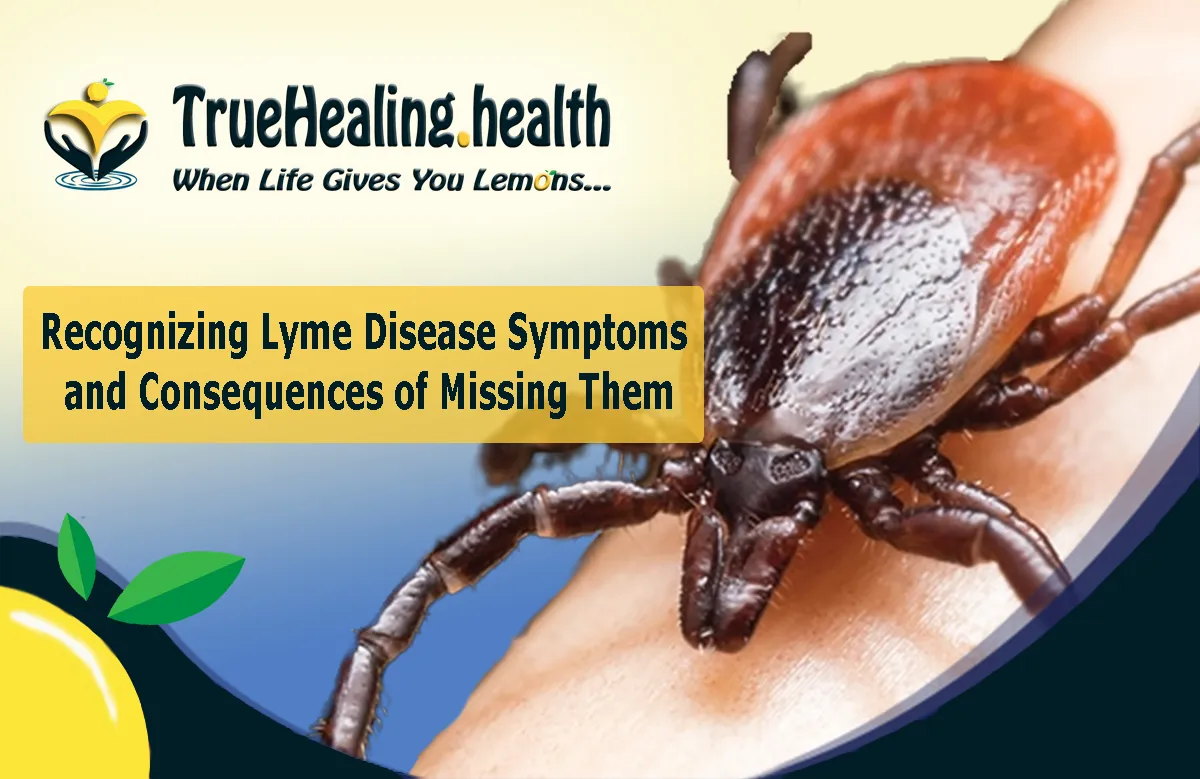Overcoming Chronic Fatigue & Long-Covid
Chronic Fatigue Syndrome (CFS), or Myalgic Encephalomyelitis (ME), is far removed from the common experience of feeling worn out after a demanding day. It’s characterized by an overwhelming fatigue that significantly impairs daily functioning and isn't alleviated by rest or sleep. This level of chronic fatigue presents unique challenges, making simple activities feel insurmountable and negatively impacting quality of life. We also include Long-Covid as the treatment's symptoms and approach are very similar and give our clients good results tackling both diseases.
Imagine your body is a vehicle that starts each morning with a significantly depleted battery regardless of the hours spent 'charging' through rest. This persistent state of exhaustion often comes with other symptoms, including post-exertional malaise, where physical or mental activities can worsen fatigue, cognitive issues known as 'brain fog,' unrefreshing sleep, chronic pain, and more. Unlike general tiredness, which can typically be resolved with a good night's sleep, CFS requires a complex and dedicated approach to management and recovery. Next, I'll provide the content for the subsequent sections, one by one and the approach of TrueHealing.
Content List
Introduction
- Engaging opening and introduction to the subject of CFS/ME.
What Exactly is Chronic Fatigue Syndrome (CFS)?
- Defining CFS/ME and its symptoms.
- Differentiating between ordinary tiredness and CFS-induced fatigue.
Why Does Chronic Fatigue Syndrome Often Go Unrecognized?
- Challenges in diagnosing CFS.
- The importance of awareness and recognition of the condition.
Can Nutrition Play a Role in Battling CFS?
- The impact of diet on CFS.
- Nutritional strategies and food recommendations for symptom management.
What Exercise Routines Are Safe and Beneficial for CFS Sufferers?
- The benefits and risks of exercise for those with CFS.
- Developing a personalized exercise plan.
How Does CFS Affect Mental and Emotional Health?
- Psychological aspects and the emotional impact of living with CFS.
- Mental health support and coping strategies.
What Are the Keys to Improving Sleep for CFS Healing?
- The relationship between CFS and sleep disturbances.
- Effective sleep hygiene practices.
Are There Medications That Help with CFS Symptoms?
- Overview of pharmacological treatments for CFS symptoms.
- Discussion on the holistic and natural approaches to management.
How Crucial is a Supportive Environment in the Journey to Recovery?
- The significance of community and familial support.
- Educational and workplace accommodations.
What Alternative Therapies Offer Hope for CFS Recovery?
- Exploration of complementary therapies and their potential benefits.
Building Your Personalized CFS Recovery Plan: Where to Start?
- Steps to create an individualized recovery strategy.
Inspiring Stories of People Who've Overcome CFS
- Real-life success stories and learnings from CFS survivors.
What Future Research and Developments Hold for CFS Treatment?
- A look into ongoing research and future prospects for CFS treatment.
- Conclusion
Summary of key points.
- Final thoughts and words of encouragement.
Overcoming Chronic Fatigue & Long-Covid

"Why Does Chronic Fatigue Syndrome Often Go Unrecognized?"
Despite its prevalence, CFS is a condition that often goes unnoticed or is misdiagnosed. Public awareness is growing, but misconceptions still exist, and the invisible nature of its symptoms can leave individuals fighting an unseen battle. The general lack of awareness in society, and even among some healthcare professionals, means that many CFS sufferers may spend years seeking an accurate diagnosis.
For those living with CFS, the journey to recognition starts with acknowledging the difference between typical fatigue and the relentless exhaustion characteristic of the syndrome. Greater understanding is key to improved support and treatment. Advocacy and education efforts continue to be vital to ensure that CFS is recognized as a legitimate, debilitating condition—one that requires ongoing research, targeted treatment strategies, and societal empathy.
"Can Nutrition Play a Role in Battling CFS?"
Diet is a cornerstone of managing CFS symptoms. The body requires quality fuel to function optimally, particularly for those battling chronic fatigue. An anti-inflammatory, nutrient-rich diet can support the body's healing process, reduce inflammation, and aid cellular repair.
For example, omega-3 fatty acids, prevalent in foods like salmon and chia seeds, can help modulate the inflammatory response. Fermented foods and those rich in fiber can support gut health, which is crucial since the gut is often called the 'second brain,' heavily influencing overall well-being. Conversely, processed foods and high-sugar diets can exacerbate symptoms through inflammatory pathways.
"What Exercise Routines Are Safe and Beneficial for CFS Sufferers?"
Exercise is a paradox in the world of CFS. While it's a cornerstone of health, excessive exertion can worsen symptoms. The goal is to strike a balance with low-impact, gentle activities tailored to the individual's tolerance levels. Starting with short walks or restorative yoga and gradually building up as tolerated can help maintain muscle tone and improve mood without over-taxing the system.
Listening to the body's signals and resting when needed is critical. Over-exertion can lead to a 'crash,' or period of intense exhaustion, derailing the recovery process. Collaborating with a physical therapist can ensure that the exercise routine is appropriate and adjusted to the fluctuating nature of CFS symptoms.
"How Does CFS Affect Mental and Emotional Health?"
CFS is not just a physical ordeal; it takes a significant toll on mental health as well. The ongoing struggle with a chronic condition can lead to feelings of anxiety, depression, and isolation. The key to addressing these issues is not only through direct mental health support like counseling but also by cultivating a supportive environment that fosters understanding and compassion.
Mental resilience can be bolstered by strategies like mindfulness, which teaches presence and acceptance, and cognitive-behavioral therapy (CBT), which can help reframe negative thought patterns. Emotional well-being is intrinsically linked to physical health, making psychological support a vital component of the treatment protocol for CFS.
"What Are the Keys to Improving Sleep for CFS Healing?"
Sleep is a sanctuary for restoration, but for those with CFS, it can often feel like an elusive paradise. Sleep disturbances are not only common but one of the most frustrating aspects of CFS, as they can exacerbate fatigue and cognitive difficulties. To unlock the healing power of sleep, individuals need to cultivate robust sleep hygiene practices.
A consistent sleep-wake schedule is fundamental, even on weekends. The bedroom should be a temple of rest: cool, dark, and free from distractions. Limiting screen time before bed, avoiding caffeine in the afternoon, and engaging in calming activities, such as reading or taking a warm bath, can prepare the body and mind for sleep. For some, relaxation techniques like deep breathing, progressive muscle relaxation, or guided imagery can be powerful tools for restful slumber.
"Are There Medications That Help with CFS Symptoms?"
The subject of medication in CFS management is often as complex as the condition itself. There's no silver bullet, no magic pill that can cure CFS, but certain medications can alleviate symptoms. Pain relievers can help manage aches, while sleep aids might be used to combat insomnia. Antidepressants are sometimes prescribed not just for mood but also to improve sleep and pain.
However, the holistic and natural approach is a beacon of hope for many. Supplements such as magnesium, which supports muscle and nerve function, or NADH, which may boost energy at a cellular level, are part of the broader picture. As always, it's vital that any medicinal strategy, whether pharmaceutical or natural, is discussed and monitored by a healthcare professional.
"How Crucial is a Supportive Environment in the Journey to Recovery?"
The path to wellness from CFS is not one to walk alone. A supportive environment is the wind beneath the wings of recovery. At home, it means having family who understand the boundaries CFS imposes and can provide practical support. In the workplace or school, it means accommodations that acknowledge the fluctuating capacity for work or study.
A network of understanding friends, compassionate employers, and accommodating educational staff can significantly lift the burden. Furthermore, online and local support groups provide a community for sharing experiences and strategies, reducing the sense of isolation that CFS can bring.
"What Alternative Therapies Offer Hope for CFS Recovery?"
In the landscape of CFS treatment, alternative therapies flourish like a diverse garden of possibilities. Acupuncture has offered relief to some, its fine needles said to rebalance energies and alleviate pain. Mind-body practices such as yoga and tai chi blend gentle movement with relaxation, potentially reducing stress and improving physical function.
Herbal remedies, from valerian root's calming properties to ginseng's adaptogenic qualities, are part of the folklore of healing. While scientific evidence is still coalescing around these therapies, they offer an adjunct to conventional medicine, with many reporting significant benefits.
"Building Your Personalized CFS Recovery Plan: Where to Start?"
Creating a personalized CFS recovery plan is like charting a course through uncharted waters—the journey is unique to every navigator. The starting points are identifying personal triggers for fatigue, establishing a rest-exercise balance, and setting realistic goals. Integrating nutritional strategies, sleep hygiene, and stress reduction techniques form the plan's core.
Collaboration with healthcare providers is key to ensuring the plan is comprehensive and adaptive. Keeping a diary can help track progress and setbacks, providing valuable insights that will help tailor the approach as the journey unfolds.
"Inspiring Stories of People Who've Overcome CFS"
Amidst life's challenges with CFS, stories of triumph emerge, offering hope and inspiration. Take the story of John, who, after years of living with CFS, found a combination of graded exercise, cognitive-behavioral therapy, and dedicated lifestyle changes that led to significant improvement. Or Sarah, whose commitment to a specialized diet and mindfulness practice has allowed her to manage her symptoms and return to her cherished activities.
These narratives are not just stories; they are testaments to the determination and resilience that define the human spirit. They serve as guideposts to others on a similar path, illuminating the possibilities for a brighter, more energetic future.
"What Future Research and Developments Hold for CFS Treatment?"
The future of CFS research beams with potential. Advances in understanding the biological underpinnings of CFS are opening doors to new treatment modalities. From exploring antiviral therapies to studying the gut microbiome, the scientific community is actively seeking solutions that will alleviate the burden of this condition.
In addition to biological research, there's an expanding interest in the psychosocial aspects of CFS and how addressing these can contribute to a more holistic treatment approach. As the veil lifts on the mystery of CFS, there's a growing sense of optimism that more effective and personalized treatments are on the horizon.
Key Takeaways
- Chronic Fatigue Syndrome is a debilitating condition characterized by extreme fatigue and a range of other symptoms.
- Accurate diagnosis and recognition of CFS are vital for proper treatment and support.
- Nutrition plays a key role in managing CFS symptoms and supporting overall health.
- Exercise for CFS requires tailor-made, low-impact routines that acknowledge the body's limits.
- Addressing mental and emotional health is crucial for those living with CFS.
- Sleep hygiene is a vital component of CFS recovery, with consistent routines and a conducive environment being key factors.
- Medication can provide symptom relief, but a holistic approach, including supplements and alternative therapies, is often explored.
- Support from family, friends, and institutions is a cornerstone of successful recovery from CFS.
- Personalized recovery plans that incorporate various strategies are optimal for managing CFS.
- Inspiring stories of recovery provide hope and a roadmap for those affected by CFS.
- Future research into CFS is promising, with the potential for new, targeted treatments.
Hashtags:
#ChronicFatigueSyndrome #MyalgicEncephalomyelitis #HolisticHealing #RecoveryStrategies #EnergyVitality #NutritionalSupport #SleepHygiene #TailoredExercise #MentalHealthSupport #SupportiveEnvironment #AlternativeTherapies #PersonalizedRecovery #CFSsuccess #HealthResearch #WellbeingTips
References List:
- Institute of Medicine. "Beyond Myalgic Encephalomyelitis/Chronic Fatigue Syndrome: Redefining an Illness." National Academies Press.
- Rowe PC, Underhill RA, Friedman KJ, et al. "Myalgic Encephalomyelitis/Chronic Fatigue Syndrome Diagnosis and Management in Young People: A Primer." Frontiers in Pediatrics.
- Natelson BH. "Myalgic Encephalomyelitis/Chronic Fatigue Syndrome and Fibromyalgia: Definitions, Similarities, and Differences." Clinical Therapeutics.
- Nacul LC, Lacerda EM, Pheby D, et al. "Prevalence of Myalgic Encephalomyelitis/Chronic Fatigue Syndrome (ME/CFS) in Three Regions of England: A Repeated Cross-sectional Study in Primary Care." BMC Medicine.
- Geraghty KJ, Jason LA. "The Physiology of Fatigue in Chronic Illness: A Body Systems Approach." Health Psychology Open.
- Carruthers BM, van de Sande MI, De Meirleir KL, et al. "Myalgic Encephalomyelitis: International Consensus Criteria." Journal of Internal Medicine.
- Shepherd C, Chaudhuri A. "ME/CFS/PVFS An Exploration of the Key Clinical Issues." The ME Association.
- Bested AC, Marshall LM. "Review of Myalgic Encephalomyelitis/Chronic Fatigue Syndrome: an Evidence-based Approach to Diagnosis and Management by Clinicians." Reviews on Environmental Health.
- Lapp CW. "Advances in the Management of Chronic Fatigue Syndrome and Fibromyalgia." The Yale Journal of Biology and Medicine.
- Maes M, Twisk FNM. "Chronic Fatigue Syndrome: Harvey and Wessely's (bio) psychosocial model versus a bio(psychosocial) model based on inflammatory and oxidative and nitrosative stress pathways." BMC Medicine.
Frequently Asked Questions FAQ
Q. What is the role of the gut microbiome in CFS and Long COVID?
A: The gut microbiome has been found to play an important role in both CFS and Long COVID. Studies have shown that patients with these conditions often have an imbalance or dysbiosis in their gut microbiome, with increased levels of pro-inflammatory bacteria and reduced diversity. This gut dysbiosis may contribute to the systemic inflammation, immune dysregulation, and metabolic disturbances seen in these illnesses. Restoring a healthy gut microbiome through dietary changes or probiotic supplementation is an area of active research for potential treatment approaches.
Q: How do autoantibodies contribute to the pathogenesis of CFS and Long COVID?
A: Autoantibodies that target various tissues and receptors have been implicated in developing CFS and Long COVID. In CFS, autoantibodies have been found that bind to receptors involved in autonomic function, potentially contributing to the dysregulation of the autonomic nervous system. In Long COVID, autoantibodies have been detected that target G protein-coupled receptors, which could lead to endothelial dysfunction and vascular abnormalities. These autoantibodies suggest an autoimmune component to the underlying pathology of these conditions. Further research is needed to fully elucidate the role of autoantibodies and potential therapeutic interventions targeting them.
Q: What is the evidence for small fiber neuropathy in CFS and Long COVID?
A: Biopsy studies have demonstrated the presence of small fiber neuropathy in both CFS and Long COVID patients. Small fiber neuropathy involves damage or dysfunction of the small unmyelinated nerve fibers, which can contribute to symptoms such as pain, autonomic dysfunction, and sensory disturbances. The small fiber neuropathy observed in these conditions may be linked to the autoimmune processes and inflammation that characterize these illnesses. Identifying and treating small fiber neuropathy is an important aspect of managing the neurological symptoms associated with CFS and Long COVID.
Q; How do mitochondrial dysfunction and metabolic disturbances contribute to the pathogenesis of CFS and Long COVID?
A: Both CFS and Long COVID have been associated with impaired mitochondrial function and altered energy metabolism. Patients often exhibit a reduced ability to generate ATP from various substrates, including glucose, fatty acids, and amino acids. This metabolic dysregulation can lead to increased oxidative stress and an inability to meet the body’s energy demands, contributing to the profound fatigue and post-exertional malaise experienced by individuals with these conditions. Targeting mitochondrial function and metabolic pathways is an area of active research for potential therapeutic interventions in CFS and Long COVID.
Q: What is the role of reactivation of latent viruses in CFS and Long COVID?
A: Reactivation of latent viruses, particularly herpesviruses such as Epstein-Barr virus (EBV), human herpesvirus-6, and cytomegalovirus, has been observed in both CFS and Long COVID. This viral reactivation may contribute to the chronic, low-grade inflammation and immune dysregulation seen in these conditions. The presence of these latent viruses and their reactivation could trigger or perpetuate the development of CFS and Long COVID. Understanding the interplay between viral reactivation and the host immune response is an important area of research for elucidating the pathogenesis of these illnesses.
Q: How do cardiovascular and cardiopulmonary abnormalities manifest in CFS and Long COVID?
A: Both CFS and Long COVID are characterized by cardiovascular and cardiopulmonary disturbances. Patients often exhibit reduced exercise capacity, decreased ventilatory efficiency, endothelial dysfunction, and hyperactivated platelets, leading to the formation of microclots. These abnormalities can contribute to the symptoms of fatigue, cognitive impairment, and post-exertional malaise. The underlying mechanisms may involve autonomic dysregulation, reduced blood flow, and impaired oxygen utilization. Addressing these cardiovascular and cardiopulmonary issues is crucial for managing CFS and Long COVID.
Q: What is the role of neuroinflammation in the pathogenesis of CFS and Long COVID?
Ar: Neuroinflammation has been implicated in CFS and Long COVID pathogenesis. Studies have found evidence of increased neuroinflammatory markers, such as activated microglia and elevated cytokine levels, in the central nervous system of individuals with these conditions. This neuroinflammatory state may contribute to the cognitive impairments, brain fog, and other neurological symptoms experienced by patients. The mechanisms driving this neuroinflammation, such as the potential role of exosome-associated mitochondrial DNA, are actively being investigated. Understanding the neuroinflammatory processes involved in CFS and Long COVID is crucial for developing targeted therapeutic interventions.
Q: How do genetic and immunogenetic factors influence susceptibility to CFS and Long COVID?
A: Genetic and immunogenetic factors have been associated with an increased risk of developing CFS and Long COVID. Certain human leukocyte antigen (HLA) class II alleles have been linked to CFS, suggesting a role for genetic predisposition and immune dysregulation. Additionally, an excess of activating killer cell immunoglobulin-like receptors (KIRs) and a lack of HLA-Bw4 ligands have been observed in CFS patients, potentially contributing to an imbalance in the immune system. In the context of Long COVID, reactivation of latent viruses, such as Epstein-Barr virus, may be influenced by genetic and immunogenetic factors that affect the host’s ability to control viral infections. Further research is needed to fully elucidate the genetic and immunogenetic underpinnings of these complex conditions.
Q: What is the role of the gut-brain axis in the pathogenesis of CFS and Long COVID?
A: The gut-brain axis, which involves bidirectional communication between the gastrointestinal and central nervous systems, has been implicated in the pathogenesis of CFS and Long COVID. Alterations in the gut microbiome, as mentioned earlier, can influence neuroinflammation, neurotransmitter production, and autonomic function, all of which are dysregulated in these conditions. Additionally, the gut-brain axis may play a role in the development of cognitive impairments, mood disturbances, and other neurological symptoms observed in CFS and Long COVID patients. Targeting the gut-brain axis through dietary interventions, probiotics, or other therapies is an emerging area of research for the management of these complex, multisystemic illnesses.
Q: How do psychological and emotional factors interact with the biological mechanisms in CFS and Long COVID-19?
A: While CFS and Long COVID are primarily biological in nature, psychological and emotional factors can also play a role in the overall experience and management of these conditions. The chronic, debilitating nature of these illnesses can lead to significant psychological distress, including depression, anxiety, and feelings of isolation. These psychological factors can, in turn, influence the body’s stress response and immune function, potentially exacerbating the underlying biological mechanisms. At the same time, the biological abnormalities associated with CFS and Long COVID can also contribute to psychological and emotional challenges. Understanding the complex interplay between the biological, psychological, and social aspects of these conditions is crucial for developing a comprehensive, patient-centered approach to care.


















